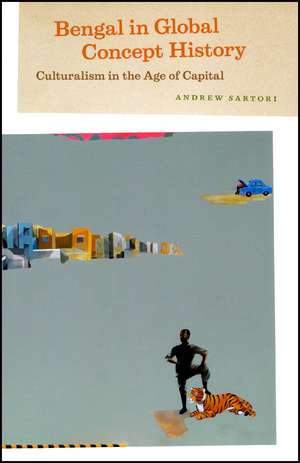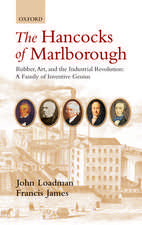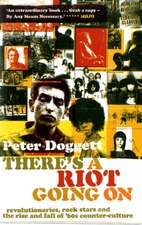Bengal in Global Concept History: Culturalism in the Age of Capital: Chicago Studies in Practices of Meaning
Autor Andrew Sartorien Limba Engleză Paperback – 15 sep 2008
Today people all over the globe invoke the concept of culture to make sense of their world, their social interactions, and themselves. But how did the culture concept become so ubiquitous? In this ambitious study, Andrew Sartori closely examines the history of political and intellectual life in nineteenth- and twentieth-century Bengal to show how the concept can take on a life of its own in different contexts.
Sartori weaves the narrative of Bengal’s embrace of culturalism into a worldwide history of the concept, from its origins in eighteenth-century Germany, through its adoption in England in the early 1800s, to its appearance in distinct local guises across the non-Western world. The impetus for the concept’s dissemination was capitalism, Sartori argues, as its spread across the globe initiated the need to celebrate the local and the communal. Therefore, Sartori concludes, the use of the culture concept in non-Western sites was driven not by slavish imitation of colonizing powers, but by the same problems that repeatedly followed the advance of modern capitalism. This remarkable interdisciplinary study will be of significant interest to historians and anthropologists, as well as scholars of South Asia and colonialism.
Sartori weaves the narrative of Bengal’s embrace of culturalism into a worldwide history of the concept, from its origins in eighteenth-century Germany, through its adoption in England in the early 1800s, to its appearance in distinct local guises across the non-Western world. The impetus for the concept’s dissemination was capitalism, Sartori argues, as its spread across the globe initiated the need to celebrate the local and the communal. Therefore, Sartori concludes, the use of the culture concept in non-Western sites was driven not by slavish imitation of colonizing powers, but by the same problems that repeatedly followed the advance of modern capitalism. This remarkable interdisciplinary study will be of significant interest to historians and anthropologists, as well as scholars of South Asia and colonialism.
Din seria Chicago Studies in Practices of Meaning
-
 Preț: 231.82 lei
Preț: 231.82 lei -
 Preț: 282.53 lei
Preț: 282.53 lei -
 Preț: 200.26 lei
Preț: 200.26 lei -
 Preț: 183.60 lei
Preț: 183.60 lei -
 Preț: 236.64 lei
Preț: 236.64 lei -
 Preț: 186.85 lei
Preț: 186.85 lei -
 Preț: 237.74 lei
Preț: 237.74 lei -
 Preț: 229.35 lei
Preț: 229.35 lei -
 Preț: 217.71 lei
Preț: 217.71 lei -
 Preț: 268.20 lei
Preț: 268.20 lei -
 Preț: 246.07 lei
Preț: 246.07 lei -
 Preț: 284.66 lei
Preț: 284.66 lei -
 Preț: 228.38 lei
Preț: 228.38 lei -
 Preț: 292.28 lei
Preț: 292.28 lei -
 Preț: 403.00 lei
Preț: 403.00 lei - 23%
 Preț: 669.93 lei
Preț: 669.93 lei -
 Preț: 242.40 lei
Preț: 242.40 lei -
 Preț: 392.77 lei
Preț: 392.77 lei - 15%
 Preț: 195.04 lei
Preț: 195.04 lei - 9%
 Preț: 287.12 lei
Preț: 287.12 lei - 17%
 Preț: 166.70 lei
Preț: 166.70 lei - 14%
 Preț: 199.02 lei
Preț: 199.02 lei - 18%
 Preț: 178.07 lei
Preț: 178.07 lei - 19%
 Preț: 148.73 lei
Preț: 148.73 lei - 22%
 Preț: 433.25 lei
Preț: 433.25 lei - 18%
 Preț: 152.10 lei
Preț: 152.10 lei
Preț: 260.44 lei
Nou
Puncte Express: 391
Preț estimativ în valută:
49.84€ • 52.16$ • 41.48£
49.84€ • 52.16$ • 41.48£
Carte tipărită la comandă
Livrare economică 01-15 aprilie
Preluare comenzi: 021 569.72.76
Specificații
ISBN-13: 9780226734941
ISBN-10: 0226734943
Pagini: 288
Dimensiuni: 152 x 229 x 18 mm
Greutate: 0.4 kg
Editura: University of Chicago Press
Colecția University of Chicago Press
Seria Chicago Studies in Practices of Meaning
ISBN-10: 0226734943
Pagini: 288
Dimensiuni: 152 x 229 x 18 mm
Greutate: 0.4 kg
Editura: University of Chicago Press
Colecția University of Chicago Press
Seria Chicago Studies in Practices of Meaning
Notă biografică
Andrew Sartori is assistant professor of history at New York University and coeditor of From the Colonial to the Postcolonial: India and Pakistan in Transition.
Cuprins
Acknowledgments
Chapter One
Bengali “Culture” as a Historical Problem
Chapter Two
Culture as a Global Concept
Chapter Three
Bengali Liberalism and British Empire
Chapter Four
Hinduism as Culture
Chapter Five
The Conceptual Structure of an Indigenist Nationalism
Chapter Six
Reification, Rarification, and Radicalization
Conclusion
Universalistic Particularisms and Parochial Cosmopolitanisms
Notes
Index
Chapter One
Bengali “Culture” as a Historical Problem
Chapter Two
Culture as a Global Concept
Chapter Three
Bengali Liberalism and British Empire
Chapter Four
Hinduism as Culture
Chapter Five
The Conceptual Structure of an Indigenist Nationalism
Chapter Six
Reification, Rarification, and Radicalization
Conclusion
Universalistic Particularisms and Parochial Cosmopolitanisms
Notes
Index
Recenzii
“This is an extraordinarily ambitious work that provides an authoritative account of the history of colonial and postcolonial Bengali intellectual life and the nationalist movement. By apprehending this complicated history of ideas and politics through the prism of how the culture concept—a global idea—becomes a Bengali concept, Sartori makes a signal, unique contribution to anthropology, critical Marxist approaches, and especially to the crowded literature on postcoloniality and cultural theoretical understandings of globalization. That Sartori is fully successful in coherently weaving the complex threads of his concerns together is the book's most important accomplishment.”
“This is an innovative work of exceptional intellectual quality—a sophisticated study of a significant but analytically intractable subject in Bengali intellectual history. Sartori’s approach is methodologically complex, and he combines this with a rich reading of a great deal of Bengali material.”
"A skilfully crafted, theoretically sophisticated and densely textured book. It does the difficult work of bringing materiality into the heart of a history of ideas."
"[Sartori's] work provides rigorously argued grist for discussions of comparative colonialisms rooted in rich and non-deterministic readings of change in particular moments and places."
"Sartori presents a highly disciplined, careful, and imaginative intellectual history, and his Marxian history of ideas . . . will incite lively debate and provide a much-needed stimulus to the writing of South Asian intellectual history."
"The trajectory of intellectual activity - from liberalism to culturalism to communalism and communism was evidently a complex journey and it is to Sartori's credit that he theorises this transition."












